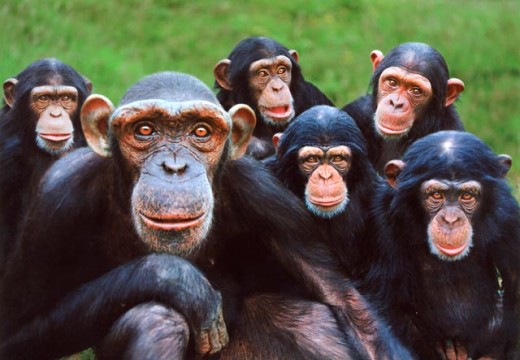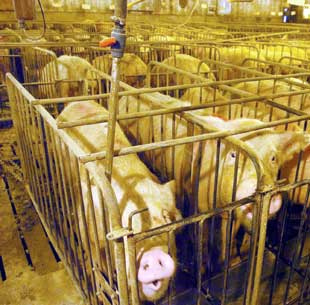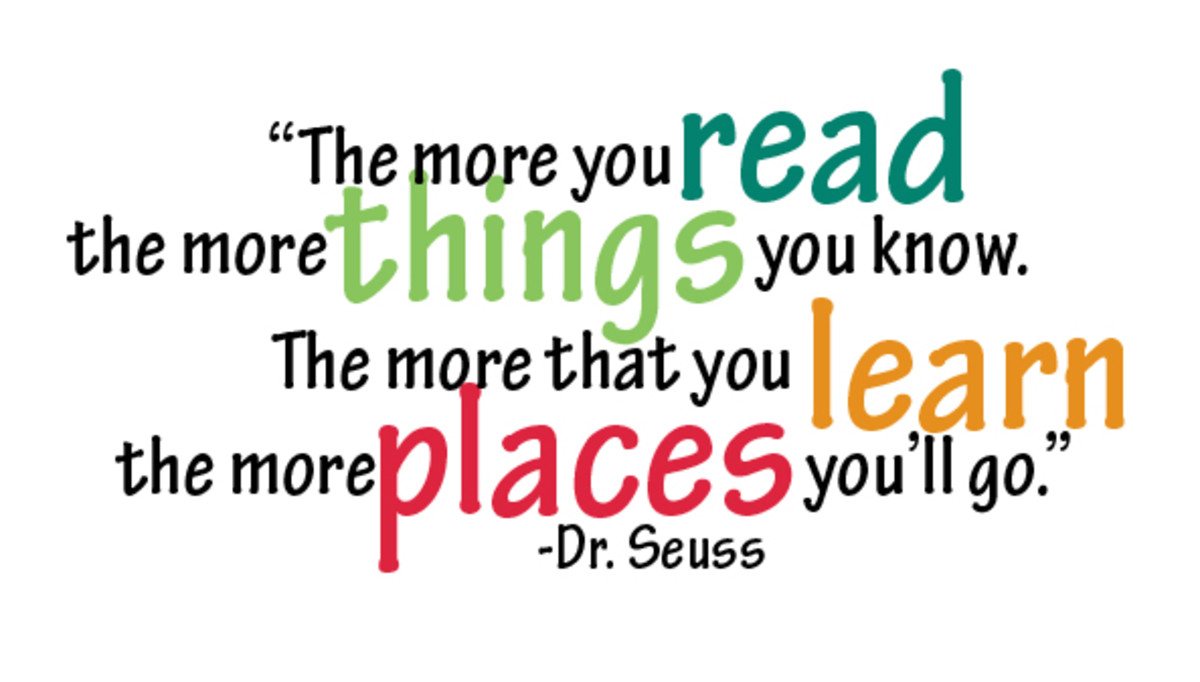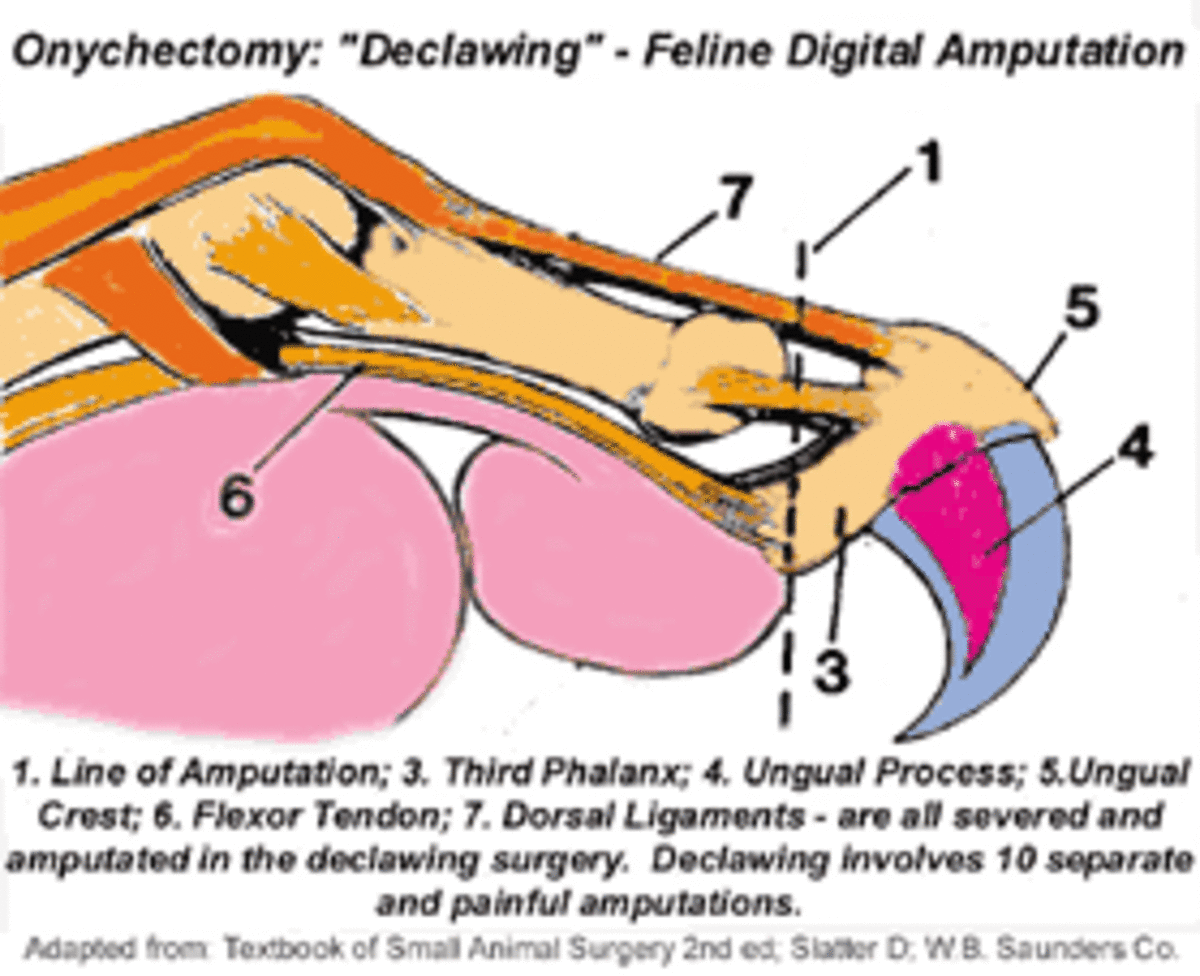Justice for Animals: A Rawlsian Approach
John Rawls (1921-2002)

This article is an abridged version of part of a dissertation I wrote for my Masters in political philosophy. It could be interesting to anyone who is interested in animal rights as it provides a different approach to the subject, but it may also be interesting to those who study political philosophy.
John Rawls was an American philosopher who lived from 1921 to 2002. His work A Theory of Justice (1971), is widely regarded as the most important work of political philosophy for our time. Within it Rawls spells out a complex theory of 'justice as fairness' - what it is and what it should entail, and he brings along many diverse ideas and intuitions.
Within this article I ask whether we can apply Rawls's theory to the subject of animal rights, and give a brief outline of what the outcome would be if we did. More broadly, I hope to respond to the question 'what are our duties of justice with regards to animals?'
Justice and Fairness
Rawls's argues for a theory of 'justice as fairness'. That is, we have a strong intuition that the concept of justice has something to do with fairness, and that principles that are unfair are likely to also be unjust.
Rawls does not argue that justice and fairness are the same things however. Consider for example the terms 'fair play' or 'fair competition' - for these terms it would not do to substitute the word 'just' in for 'fair'. Rawls supposes that 'fairness' relates to the way in which rules and principles are made, to procedures, whereas justice is concerned with outcomes.

'The Original Position' and the 'Veil of Ignorance'
Rawls argues that, in order to find fair principles of justice, we must imagine ourselves to be in an 'original position'. The parties to the 'original position' are understood to be under a 'veil of ignorance'. Under this veil they do not know certain details about themselves; details such as their race, their gender, their social background, even their individual preferences. They do however know certain general facts about the human condition; that resources are moderately scarce, that people are roughly equal (physically and mentally), that mutually advantageous cooperation can be had, and so on. Within this original position, under the veil of ignorance, the parties are to design principles of justice.
Consider the idea - you don't know what race you'll be, what gender you'll be, what your sexuality will be, and so on. Now design the laws of your land. Would you argue for women to be second class citizens if there was a good chance you could be one, or would you argue for equality of the genders? Clearly you would argue for the latter.
You could still argue for some inequalities of course, if those inequalities are acceptable to all parties. You still would want people to be rewarded for their hard work, for example. Or with regard to public positions, it is important that the most qualified people are considered, and so there may be benefits (extra pay, influence, etc.) attached to such positions to attract those people. In the long run this will benefit everyone. Rawls suggests that such positions would have to be open to all, and be won by fair competition.
And so, through this hypothetical contract, Rawls says, we have a way of finding out what just institutions and principles should look like. The idea is to design the social system so that the outcome is just whatever it happens to be.

The Exclusion of Animals from 'A Theory of Justice'
In A Theory of Justice Rawls excludes animals from his theory, for they are not 'moral persons'. To be a 'moral person' one must have a conception of the good and a sense of justice. Firstly, what do we mean by these philosophical terms, and was Rawls correcting in excluding animals from his theory because of them?
A 'conception of the good' is basically philosophy speak for saying that one has interests, things that they'd like to pursue and things they'd like to avoid. You can go into much more detail about what a 'conception of the good' involves, but it seems pretty obvious to me that animals do fulfil this requirement. Animals feel pleasure and pain just as humans do. Most also have some rational plan of life, goals they are pursuing whether short or long term. You could argue that animals don't have long term goals like humans do, but I don't think that's a particularly important consideration, especially considering there are many humans who live in the moment and have no real plans for life and we wouldn't want to exclude them from our theory of justice.
Do animals have a 'sense of justice'? This is a trickier matter. Certainly some higher primates have developed a sense of the importance of reciprocity (you scratched my back so I'll scratch yours). Some would argue that a common language is necessary to be able to understand and fulfil one's obligations. And yet, a common language is not always necessary for there to be some form of communication - so long as one party has given another an expectation of how the future will turn out, some communication has been made. It seems fairly clear then to me that certain animals like the higher primates should be included in a theory of justice, based on Rawls's criteria.
But it is clear that most animals do not have the capacity for a sense of justice. That is, they cannot, due to an inability to understand abstract concepts, act in accordance with Rawls's principles of justice. It was this focus on 'moral persons' that led Rawls to reject animals as proper subjects of justice. However, Rawls goes on to say straight away that, though a capacity of a sense of justice is a sufficient condition for being entitled to equal justice, it may not be a necessary condition. A sense of justice entitles you to be part of a theory of justice, but you can sometimes be part of a theory of a justice without a sense of justice.
What's going on here? The confusion here is I think because Rawls does not want to exclude certain human beings who do not have a sense of justice from his theory, whether they are infants who have yet to develop the sense, or those who have temporarily lost the capacity (for example if they're in a coma, or suffering from brain trauma). But if it is unwise to withhold justice on the grounds that a being does not have a sense of justice, how then is it acceptable to withhold justice to animals? Rawls says that the subject of animals and justice is a difficult one and beyond the scope of his book. In other words, he fudges it.


Animals in the Original Position
I here want to propose a different set of criteria for being admitted into the original position. And this is that any being with moral status should be considered. There is a general sentiment that sentient animals have moral status - that is, you cannot just do with an animal whatever you want as you could with an inanimate object. We feel intuitively that the fact that animals feel pleasure and pain just as humans do (we're all animals after all), grants them a certain moral status. Therefore, animals should be admitted to the original position.
Or, in other words, under the veil of ignorance, you don't know what species you will turn out to be when you emerge, and your principles of justice should reflect that position of uncertainty. What does this do to our principles of justice? How will the outcome of the hypothetical agreement be affected?
Presumably, at the most basic level, animals would be granted the right to life and to some level of autonomy. The right to be free from suffering would perhaps be a primary principle, and this is something most people would already agree with. Animals should be given some level of freedom to act in ways that are natural to them, to allow them to raise their young, to explore their natural habitats, and so on. If they are domesticated animals then we would probably have to consider them in a paternalistic way, perhaps similar to how we treat children. I think the parties to the original position would agree that ecosystems should not be tampered with, because by trying to help all the wild animals a greater suffering is likely as a result.
Of course we may not like these conclusions - they may not sit well with our current attitudes and dealings with animals. Most people are fairly content with the current system that allows them to kill animals unnecessarily just to satisfy their taste buds. But the point is not to ask what is convenient to accept, but what we ought to accept to keep our intuitions regarding moral status and justice consistent.
One might argue that including animals within the original position would produce absurd results. For example, we do not want to say that animals should be given the full political liberties that human beings have, the right to vote and so on, because they are not capable of understanding the full implications of such a liberty. On the other hand, we do not want to deny the right to vote to even the least intelligent human adults (consider the outcry if people had to pass an intelligence test to be eligible to vote). How can we reconcile these views?
Well we might reply that the vast majority of human beings understand what they are doing when they vote, whereas pretty much all animals would not. The minority of human beings that do not understand the full implications of what their vote will do will not be large enough to affect any outcome. On the other hand, the controversy that would undoubtedly result if we were to, say require of people that they pass some type of intelligence test in order to vote, would greatly outweigh the insignificance of allowing them to vote.
Still, I think it is for this reason, because they do not understand the full implications of what their vote will do, that we do not allow children to vote, even when they are affected by the outcome of that vote (I have a feeling most children would vote for the Moster Raving Loony Party in this country. Or worse, they might vote for Boris Johnson). Instead, the rest of us have to act as guardians for children when casting our votes, and presumably the same kind of thought process should be extended to animals.
Conclusion
In this article I mostly wanted to consider whether Rawls's theory of justice could sensibly be applied to animals, and I made a brief consideration of what our principles of justice might look like if we did.
We can all agree that keeping animals in factory farm conditions is immoral. We might even want to say that the practice of breeding animals to then slaugher and eat them is immoral as well. But are these practices unjust? I see no reason why animals shouldn't be included in a theory of justice, and assuming we accept this premise, the subject of exploring what our principles of justice towards animals should be is a massive subject in it's own right.







